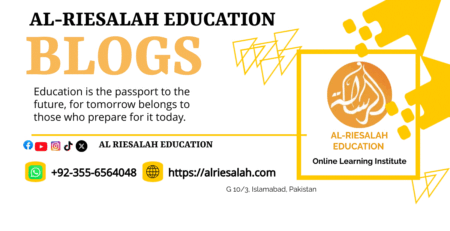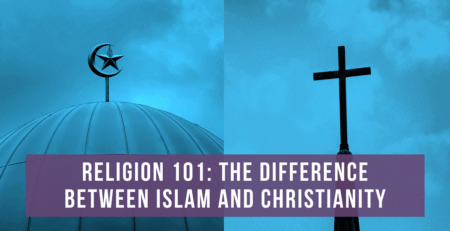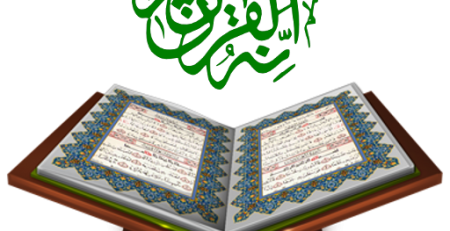The Holy Month of Ramadan in Islam: A Comprehensive Guide
Ramadan, known as the holiest month in Islam, holds immense significance for Muslims worldwide. It marks the ninth month of the Islamic lunar calendar and is observed with fasting, prayer, reflection, and community gatherings. The essence of Ramadan lies in spiritual purification, self-discipline, and strengthening of faith. Understanding its origins and significance provides insights into its profound impact on Muslim communities globally.
Fasting: The Pillar of Ramadan
Fasting (Sawm) during Ramadan is one of the Five Pillars of Islam, representing a fundamental religious obligation for Muslims. From dawn until sunset, individuals abstain from food, drink, smoking, and other physical needs. The fast serves as a means of spiritual purification, fostering empathy for the less fortunate, and cultivating self-discipline. While exceptions exist for children, the elderly, travelers, pregnant women, and individuals with medical conditions, fasting remains a central practice during Ramadan.
The Spiritual Journey: Reflection and Connection
Beyond abstaining from physical desires, Ramadan encourages deep introspection and connection with Allah. Muslims engage in increased prayer, recitation of the Quran, and acts of charity (Zakat) during this sacred month. The communal aspect of Ramadan fosters solidarity among believers, as they share meals and prayers with family, friends, and neighbors. The emphasis on spiritual growth and communal bonds enriches the overall Ramadan experience.
The Quran: A Guide for Ramadan
Ramadan holds special significance as the month in which the Quran, the holy book of Islam, was revealed to the Prophet Muhammad (peace be upon him). Muslims intensify their recitation and study of the Quran during Ramadan, seeking guidance, wisdom, and spiritual enlightenment. The Night of Power (Laylat al-Qadr), occurring in the last ten days of Ramadan, holds immense significance, as it marks the night when the Quranic revelations began.
The Ramadan Routine: Daily Practices
The daily routine of Ramadan revolves around two key rituals: Suhoor (pre-dawn meal) and Iftar (breaking the fast). Suhoor provides sustenance before the day’s fast begins, while Iftar brings families and communities together to share a meal at sunset. Additionally, Muslims engage in Taraweeh prayers, performed each night during Ramadan, offering opportunities for spiritual reflection and connection with Allah. Discipline and self-control are central to maintaining the Ramadan routine effectively.
Challenges and Opportunities
While Ramadan is a time of spiritual renewal and growth, it also presents challenges. Balancing religious commitments with daily responsibilities can be daunting, especially for working professionals and students. Moreover, fasting may pose physical challenges, requiring individuals to manage their health effectively. Addressing misconceptions about Ramadan, such as its association with extremism or oppression, is crucial in promoting understanding and acceptance.
Unity and Celebration: Eid al-Fitr
The culmination of Ramadan is marked by Eid al-Fitr, a joyous celebration that brings together Muslims from diverse backgrounds. Eid festivities include communal prayers, feasting, exchanging gifts, and giving to charity. The celebration of Eid underscores the unity and brotherhood among Muslims, transcending cultural and geographical boundaries. It serves as a time of gratitude, reflection, and renewed commitment to one’s faith.
Global Observance of Ramadan
The observance of Ramadan varies across regions and cultures, reflecting the diversity within the global Muslim community. While fasting and prayer remain central practices, traditions and customs may differ, influenced by local cultures and customs. In recent years, technological advancements have facilitated new ways of observing Ramadan, such as virtual community gatherings and online Quranic recitations. Despite challenges, Muslims worldwide continue to uphold the spiritual essence of Ramadan with resilience and devotion.
Conclusion: Embracing the Spirit of Ramadan
As Muslims bid farewell to Ramadan, they carry forward its teachings and values throughout the year. The spiritual journey of Ramadan instills virtues of compassion, empathy, and gratitude, fostering a deeper connection with Allah and humanity. Beyond the rituals and practices, Ramadan serves as a time of personal growth and renewal, inspiring believers to lead lives guided by faith and righteousness.
FAQs
- What is the purpose of fasting during Ramadan? Fasting during Ramadan serves as a means of spiritual purification, self-discipline, and empathy for the less fortunate. It fosters a deeper connection with Allah and strengthens faith.
- How do Muslims celebrate Eid al-Fitr? Eid al-Fitr is celebrated with communal prayers, feasting, exchanging gifts, and giving to charity. It is a joyous occasion that brings together families, friends, and communities.
- Is it obligatory for all Muslims to fast during Ramadan? Fasting during Ramadan is obligatory for adult Muslims who are mentally and physically capable. Exceptions exist for children, the elderly, travelers, pregnant women, and individuals with medical conditions.
- What is the significance of Laylat al-Qadr? Laylat al-Qadr, also known as the Night of Power, holds immense significance in Islam as it commemorates the night when the first verses of the Quran were revealed to the Prophet Muhammad (peace be upon him). It occurs during the last ten days of Ramadan, with particular emphasis on the odd-numbered nights, such as the 21st, 23rd, 25th, 27th, or 29th night. Muslims believe that Laylat al-Qadr is a night of profound blessings, forgiveness, and mercy. Therefore, devout believers engage in increased worship, prayer, and supplication during this auspicious night, seeking spiritual rewards and divine guidance.
- The Ramadan Routine: Daily Practices Ramadan introduces a unique daily routine for Muslims worldwide, centered around the observance of fasting and spiritual practices. The pre-dawn meal, known as Suhoor, is consumed before the Fajr (dawn) prayer, marking the beginning of the fasting period. Suhoor provides sustenance and energy for the day ahead. Throughout the day, Muslims abstain from food, drink, smoking, and other physical needs as an expression of devotion and obedience to Allah. The fast is broken at sunset with the evening meal, known as Iftar, which often begins with the consumption of dates and water, followed by a larger meal. Iftar gatherings bring families, friends, and communities together, fostering a sense of unity and camaraderie. Additionally, Muslims engage in Taraweeh prayers, performed each night during Ramadan, which involve the recitation of lengthy portions of the Quran. These prayers offer opportunities for spiritual reflection, connection with Allah, and communal worship.
- Challenges and Opportunities While Ramadan is a time of spiritual renewal and growth, it also presents unique challenges for Muslims. Balancing religious obligations with daily responsibilities, such as work, school, or family commitments, can be demanding. Fasting may also pose physical challenges, particularly for individuals with medical conditions or those living in extreme climates. Moreover, misconceptions and stereotypes about Ramadan can create additional difficulties, such as discrimination or misunderstanding in society. However, Ramadan also presents opportunities for personal growth, self-discipline, and empathy. Overcoming these challenges with resilience and faith strengthens the bonds of community and enhances the spiritual journey of Ramadan.
- Unity and Celebration: Eid al-Fitr Eid al-Fitr, the Festival of Breaking the Fast, marks the end of Ramadan and is celebrated with great joy and festivity by Muslims worldwide. The day begins with communal Eid prayers, performed in mosques, open fields, or designated prayer grounds. Following the prayers, Muslims gather with family and friends to exchange greetings, share meals, and give gifts. It is customary to give Zakat al-Fitr, a form of charity, before the Eid prayers, ensuring that the less fortunate can also partake in the festivities. The celebration of Eid al-Fitr transcends cultural and geographical boundaries, uniting Muslims in a shared sense of joy, gratitude, and spiritual renewal.
- Global Observance of Ramadan The observance of Ramadan varies across regions and cultures, reflecting the diversity within the global Muslim community. While fasting and prayer remain central practices, traditions and customs may differ, influenced by local cultures, customs, and social norms. In Muslim-majority countries, Ramadan is often characterized by a festive atmosphere, with bustling markets, special Ramadan foods, and extended nighttime activities. In multicultural societies, Muslims may encounter unique challenges, such as navigating work or school schedules while fasting. However, technological advancements have facilitated new ways of observing Ramadan, such as virtual community gatherings, online Quranic recitations, and digital charity platforms. Despite these adaptations, the spiritual essence of Ramadan remains unchanged, guiding Muslims on a journey of faith, reflection, and self-improvement.
- Conclusion: Embracing the Spirit of Ramadan Ramadan embodies the values of compassion, empathy, and gratitude, fostering a deeper connection with Allah and humanity. As Muslims bid farewell to Ramadan, they carry forward its teachings and values throughout the year. The spiritual journey of Ramadan instills virtues of discipline, self-reflection, and generosity, shaping individuals into better members of society. Beyond the rituals and practices, Ramadan serves as a time of personal growth and renewal, inspiring believers to lead lives guided by faith and righteousness.











Leave a Reply